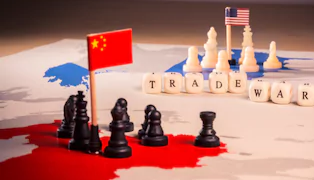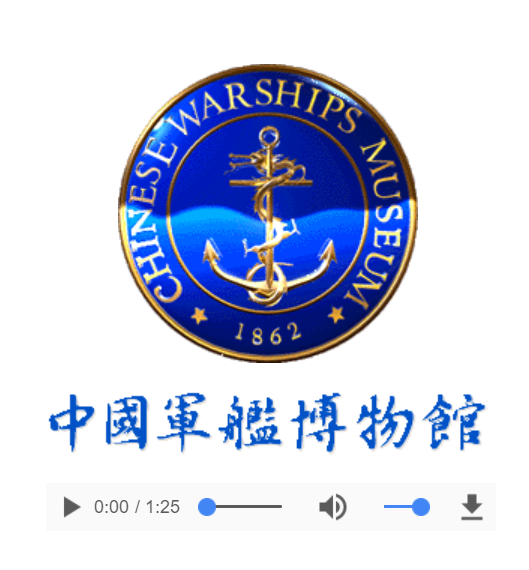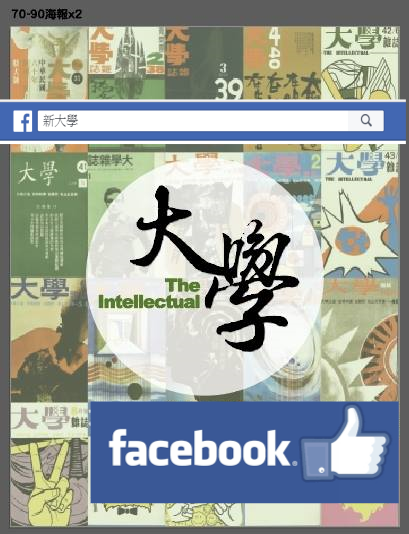♦ 本文內容轉載自: 中美論壇專刊 US-China Forum (Chinese) ♦
Trading is a human trait ever since humans formed societies from the Stone Age, through the agricultural eras then to the industrialization centuries. Human civilization advanced by creating and embraing technologies which ever more enhanced the necessities of trading. Trading is a bilateral act consummated by negotiation under a mutually agreed trading system involving transportation and distribution logistics and financing and payment mechanisms. When negotiation is abandoned, history showed us, trading war begins harming human societies to a pain level that a military war may occur. The two past world wars were clear evidence of that. Today, our world is witnessing a serious trading war launched by President Trump of the U.S. Why does a self proclaimed great negotiator want to abandon negotiation and initiate a trading war? This is a puzzling question we need to find an answer.
For the benefit of doubt, since the trading war is just launched, we may speculate that Trump’s trading war is really a part of his negotiation tactics. Then why does Trump have to resort to trading war to adjust trading pattern and to correct trading results? Trump’s tariff on aluminum and steel not only punishes China but also impacts Canada, India, Mexico, and Several EU countries. The 25% tariff on 34 billion Chinese goods has triggered China’s retaliating reaction but Trump has added 10% tariff on $200 billion Chinese goods which are still being tabulated by the commerce department. This type of rash behavior can hardly be imagined as the action of a rational government practicing a deliberated thought process to develop trade policies. Of course, no one has enough information nor any psychic power to read into President Trump’s mind to know the answers to the why questions. As a citizen one has the right to analyze the trade issue at hand based on common sense and voice one’s opinion whether the government’s current trade policy hurts the U.S. or not.
President Trump seems to feel that the U.S. has been taken advantage of by the world for too long in trading (“allowed by the previous administrations”) that it is difficult for the U.S.(for him as the President) to correct the ills without taking extreme measures; in his view, the extreme measure can include denying all previous trade agreements and starting from fresh using trade war as a tool to pressure the trading partners since the U.S. has a large market. However, trade agreements and trade practices were accepted willingly by trading partners through negotiations. It is hard to believe that the American people involved in the past trading negotiations were all dummies who would give away the store for not getting anything in return. Looking back we see that the U.S. has always held a strong trading position with her abundant agricultural produce and energy resources, despite of an oil cartel and many countries desire to have self sufficiency in food suppy. The U.S. conscientiously lets her low-tech labor intensive manufacturing industry to disappear and deliberately maintains her hi-tech capital intensive industries to flourish and lead the world. The U.S. also created and excelled in a sophisticated financial industry attracting capitals to the U.S. eitherfor investing in our risky hi-tech development or for financing American debts.
There is nothing wrong with the above strategy except one must realize that every developing country in the world is trying to move up in the technology ladder to take advantage of productivity gain from technology rather than being satisfied with maintaining low-tech industries to produce cheap goods for the developed nations. The above U.S. strategy has been working for decades in favor of the U.S. so long as the advancement and innovations in her hi-tech industries can keep ahead of the competitive followers. When competitors caught up then the U.S. may lose. For example, the American auto-industry used to dominate the world until competitors crushed them. American airplane industry can export one plane worth more than million pairs of shoes or pants imported if no competitor is behind. With smart marketing and trademark protection, some vast amount of low-tech products imported into the US marketis creating huge profits for American companies. For example, a pair of Adidas sneakers is typically sold at prices of multiple times than their import value making a huge profit for Adidas and its stock holders but no benefit for American workers who lost their Adidas jobs. The no brand imports, of course, do contribute to trade imbalance, but their low prices (say shoes and pants) actually benefit lower income Americans who can only afford the cheap imports.
The issue of trade imbalance between the U.S. and China, therefore, is not as simple as the import and export figures indicate nor as “American jobs stolen by China” as retorted by Trump in his campaign. Labor intensive industries face the challenge of labor cost thus they migrate from developed countries to developing countries as a natural economic movement. Any government protection scheme including tariffs can only slow down their migration a bit but eventually fails. This phenomenon existed for many decades and the only sensible solution is to create new industries based on hi-technology components to maintain a competitive edge or gain higher productivity. However, hi-tech industries may create new jobs but they may also eliminate existing jobs especially labor jobs. Apparently, China has learned from others’ experiences, she is launching a technology and innovation drive (“China Manufacturing 2025”) to upgrade their industries to higher value chain but with a focus on achieving a net job increase not job loss. This is nothing new; Germany has her German Industry 4.0. In U.S., the government neglected the manufacturing industry for years in favor of financial industry resulting in today’s dilemma: The U.S. highly depends on manufacturing imports and financial product exports. The imports are more physical necessity products and the exports depended more on a debt ridden society (like the U.S. highly depended on debt refinancing to get by).
So Trump’s attempt to use trade war to stop China Manufacturing 2025 and forc her to open up financial markets is not a logical policy; not only China will not accept it, it also does not necessarily help the U.S. The sensible solution is to accelerate technology innovation and sell (rather than restrict) high-tech sales to China. China recognizes the value of her market size able to attract technology companies to come and manufacture and sell products. Technologies are protected by patents but patents are just a piece of paper without markets to accept their applications. The U.S. should exploit the huge market in China to sell her technology products to make profit and sustain her technology development to maintain her leadership position. For example, GM makes 10 million cars; 4 million are manufactured and sold in China. The question is whether GM is plowing back its profit to develop advanced technology to maintain a technology lead or simply to distribute its profit as dividends. Tesla with its technology lead in electric vehicle is setting up manufacturing factory and research and development center in China. Obviously, Tesla is valuing China’s market thus ignoring President Trump’s plead to keep manufacturing in the U.S.
The above discussion is just common sense analysis not deep economic theory, but it is sufficient to tell us that Trump’s trade war policy does not solve the US trade problem nor help her industry revitalization. The U.S. needs to understand China’s market value and the scope of China’s 2025 manufacturing industry upgrade to come up with her industry policy to leverage her lead in many technologies and to take advantage of China’s market to accelerate technology products manufacturing, develop and sell products for Chinese markets and sustain her lead in technologies.
2018/7/28
中美論壇 US-China Forum (Chinese): http://www.us-chinaforum.org/
♦ 專文屬作者個人意見,文責歸屬作者,本報提供意見交流平台,不代








